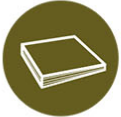DHA eNews - U.S. Suspends Normal Trade Relations With Russia
On April 8, the U.S. suspended normal trade relations with Russia and Belarus, immediately raising tariffs on Russian birch plywood to 50% in many cases. This and other restrictions are well deserved, but as the U.S. imported 567 million square feet of hardwood plywood from Russia last year, this large amount of plywood will be hard to replace particularly for the engineered wood flooring industry. Decorative Hardwoods Association and flooring associations held a webinar on April 19 to provide the engineered wood flooring industry with information and resources to address this major challenge.
Going further, Republicans in Congress proposed banning imports of Russian timber and sustainably increasing the domestic harvest. Unfortunately, it appears that unfounded concerns about harvesting wood may prevent this legislation from moving forward and filling the Russian supply gap.
It looks like this year will continue with dramatic changes that impact our industry. If you aren't a member, join DHA to help address these challenges. If you are a member—thank you—and be sure to join us at DHA’s Annual Meeting, May 16–18.
If you have questions or comments, contact me. I look forward to hearing from you.

Keith A. Christman, President
Decorative Hardwoods Association
Photo © White House

On April 8, the U.S. suspended normal trade relations with Russia and banned Russian energy imports after President Biden signed both bills into law. The trade bill, which the Senate passed 100-0, also revokes Belarus' normal trade relations with the U.S.
Source: U.S. International Trade Comission
House Republicans introduced the No Timber From Tyrants Act that would ban wood imports from Russia. The bill would also authorize sustainable increases in the timber harvest on federal lands to make up for the shortfall from Russia, which will be substantial—last year, the U.S. imported 567 million square feet of hardwood plywood from Russia. Unfortunately, the legislation lacks Democratic support so it is unlikely to become law.
DHA partnered with the Floor Covering Institute and National Wood Flooring Association to provide a webinar on the impact of Russian birch plywood restrictions on the U.S. engineered wood flooring market. Panelists discussed the regulation of Russian birch products, testing, and alternatives.
The European Commission has adopted sweeping new sanctions against Russia, including banning imports of wood, coal, chemicals, and other products.
After the Forest Stewardship Council suspended all Russian FSC trade certificates beginning April 8, FSC Russia announced the launch of a Russian scheme for voluntary forest certification: Forest Etalon.
The Forest Stewardship Council has suspended certificates in areas of Ukraine where there are armed conflicts. In regions occupied by Russian troops, Ukraine’s laws can no longer be enforced and the safety of FSC auditors cannot be guaranteed.
After reaching a 10-year high in January, the volume of U.S. imports of hardwood plywood fell by 11% in February, with declines across most exporting countries. Despite the decrease, imports are still well above usual levels and significantly higher than one year ago.
The spongy moth caused record levels of defoliation in Ontario last year, decimating nearly 5.5 million acres, an increase of about 300%. The non-native invasive pests, also known as LDD or gypsy moths, have more than 300 known host plants but prefer poplar, oak, maple, birch, white pine, and white spruce.
Scientists have found that while net losses are still high, recent data shows a decrease in the net loss of forest—the balance between deforestation and the natural expansion or planting of woodlands. Half of the world's forest area is in five countries: Russia, Brazil, Canada, the U.S., and China. That’s why DHA promotes the use of sustainably harvested legal timber.
A University of Reading study of the relationship between forest loss and rainfall and temperature trends in India shows that climate change may have contributed to huge forest declines over the last twenty years. This contradicts official reports of relatively small forest loss.
Register now for the Decorative Hardwoods Association 2022 Spring Conference and 101st Annual Meeting! Sign up no later than Friday, April 22, to save on registration.
This year, we'll be in downtown Nashville from Monday, May 16, to Wednesday, May 18. Experts will forecast industry trends, trade, and the supply chain as well as the impact of tariffs and the Real American Hardwood marketing campaign. Join us!
Decorative Hardwoods Association’s Legal Timber Due Diligence Standard, ANS LTDD 1.0 2015, has been revised and is now available for public comment. To find out how to submit your comments and to obtain an electronic copy of the revision, BSR LTDD 2.0 202x, see page 19 of ANSI's Standards Action publication. The public comment period closes on May 16, 2022.
A new type of forest machine is being test driven in Sweden's forests. The Centipede, developed by eight Swedish forestry companies and a forest machine manufacturer, combines a low-impact approach, increased productivity, and an improved operator environment during harvesting.
Architects and builders are increasingly choosing mass timber, an engineered wood product similar in strength to concrete and steel, to build multistory buildings. Guests at Sweden's new 20-story cultural center and hotel are immersed in nature: the building's floors, ceilings, and support beams are made almost entirely of spruce and pine harvested from nearby forests.
The experts at Capital Testing discussed hot topics including how to find and certify new suppliers to replace Russian suppliers of birch plywood as well as the upcoming U.S. EPA TSCA Title VI laminator exemption that expires in 2024.
What are the two best species of wood to use to make pencils?





